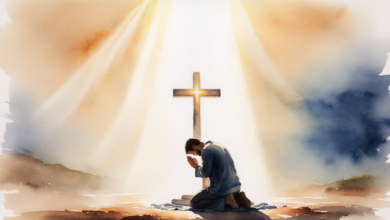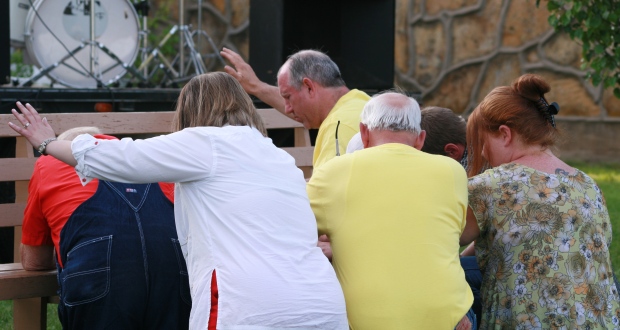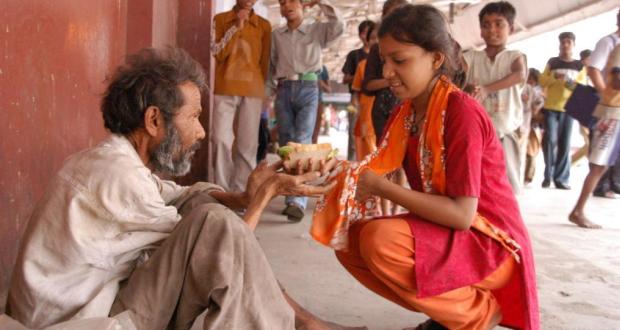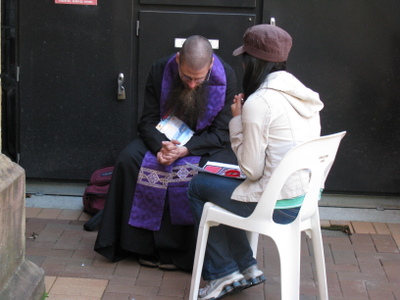The Ripple Effect of Generosity: Lessons from the Widows and Christ

Introduction:
In a world often focused on abundance and excess, the stories of two widows from ancient scripture offer a profound reflection on sacrificial giving and trust in God. These women, one from the time of the prophet Elijah and the other observed by Jesus Himself, gave all they had, teaching us timeless lessons about faith and generosity. As we delve into their stories, we are invited to explore how we, too, can embrace a spirit of selflessness, recognizing God’s generosity in our lives and responding with open hearts.
Reflection on the Readings:
In the First Book of Kings, the prophet Elijah encounters a widow gathering sticks, preparing for what she believes will be her last meal with her son. Despite her desperate situation, when Elijah asks for water and a morsel of bread, she responds with generosity, offering all that she has. Her faith is rewarded with a miracle: her jar of flour and jug of oil remain full throughout the famine, sustaining her family.
In the Gospel of Mark, we see Jesus observing the crowd at the temple treasury. Many wealthy individuals come forward, making a show of their substantial donations. Yet, it is a poor widow, offering just two small coins, whom Jesus commends. Her gift, though monetarily small, is of immeasurable value because she gives all she has, entrusting her livelihood to God.
These narratives challenge us to reconsider our understanding of generosity. True giving isn’t about the amount but the spirit of the giver. It is about trusting in God’s provision, even in our most vulnerable moments, and being willing to give of ourselves fully. The widow’s mite becomes a symbol of ultimate trust and surrender to God’s will, an act of worship that resonates through the ages.
As we reflect on these readings, we’re invited to consider our own approach to giving. Do we give from our surplus, or are we willing to offer even when it costs us dearly? Do we trust in God’s abundance, or are we held back by fear of scarcity? These questions challenge us to deepen our faith, to recognize the ways God provides for us, and to respond with open hearts and hands.
Knowing God and Recognizing His Generosity:
To truly understand and appreciate God’s generosity, we must first seek to know Him. Our relationship with God is foundational to recognizing His hand in our lives. When we know God, we begin to see the countless ways He provides for us, often in ways we might overlook.
God’s generosity is not only material but also spiritual. He offers us His love, mercy, and grace abundantly. Through prayer, scripture, and the sacraments, we come to know Him more intimately. This knowledge deepens our trust in Him, allowing us to surrender our fears and embrace His plan for us.
Like the widows in the readings, our generosity flows from our relationship with God. When we know Him and trust in His providence, we are freed to give without counting the cost. We become channels of His generosity, extending His love and mercy to those around us. Our acts of giving, when rooted in the knowledge of God’s infinite generosity, become a reflection of His love in the world. When we give from the depths of our hearts, especially in times of personal hardship, we participate in a divine exchange that transcends material value. It is through knowing God that we find the courage to give like the widows—fully, freely, and with unwavering faith in His provision. In doing so, we become living testimonies of His boundless generosity, inspiring others to seek and know Him as the source of all that is good.
A Modern-Day Example:
Consider the story of a man who began feeding a few hundred people out of a simple desire to help one person in need. What started as a small act of kindness blossomed into a mission, providing meals for thousands.
Mary’s Meal, started by Magnus MacFarlane-Barrow, it began with a simple effort to help those suffering during the Bosnian War in the early 1990s. Magnus, initially just a salmon farmer, was inspired to collect aid and drive it to Bosnia. This initial act of charity grew beyond his expectations.
In 2002, during a trip to Malawi, Magnus met a boy whose mother was dying of AIDS. The boy said his only hope was to have enough to eat and to attend school one day. This encounter inspired the idea of Mary’s Meals, which provides daily meals in school for children in impoverished communities.
Starting with feeding 200 children in Malawi, Mary’s Meals has grown to feed over a million children daily across the globe. The organization operates on the simple premise of offering one good meal in a place of education, encouraging children to attend school and receive an education that could be their ladder out of poverty.
Magnus’s initial response to a crisis, giving what he could eventually led to an incredible outpouring of generosity and support from others. What began as a modest effort to help a few individuals has grown into a global movement, feeding over a million children every day.
This story reflects how God can multiply our humble offerings, turning them into something far greater than we could have imagined. It’s a testament to the power of faith and generosity, showing that when we give, even from our scarcity, God can create abundance and bring about miraculous change.
The Ultimate Gift:
The stories of the two widows who gave all they had mirror the ultimate act of generosity: Jesus Christ giving His life on the cross. In His sacrifice, Jesus held nothing back, offering Himself completely for the salvation of the world. This self-giving is the epitome of love and generosity, a gift that continues to give through the ages.
Both widows, in their willingness to give everything, prefigure Christ’s ultimate sacrifice. Their stories remind us that true generosity often requires sacrifice, but it is a sacrifice that unites us with Christ’s own offering. In giving all they had, these women exemplify the call to radical trust in God’s provision and the willingness to pour out their lives in service to others.
As followers of Christ, we are invited to emulate this generosity in our own lives. We may not be called to give all our material possessions, but we are called to give of ourselves—our time, our talents, and our love—in service to God and neighbor.
In doing so, we participate in the divine economy of grace, where even the smallest act of generosity is magnified by God’s abundant love. We become instruments of His peace, bringing light to a world in need.
A Call to Action:
As we reflect on these powerful examples of generosity, let’s consider how we can embody this spirit in our daily lives. Generosity isn’t confined to grand gestures; it is woven into the fabric of everyday actions. Here are some practical ways we can make a difference:
- In Our Families: Practice generosity by giving our time and attention to our loved ones. Listen without distraction, offer help without being asked, and create an environment where each member feels valued and supported.
- In Our Workplaces: Whether we’re teachers, doctors, lawyers, or any other profession, we can be generous with our skills and knowledge. Mentor a colleague, volunteer for a project that serves the community, or simply offer a kind word to someone having a tough day.
- In Our Communities: Get involved in local initiatives that support those in need. This could be volunteering at a shelter, donating to a food bank, or participating in community clean-up efforts.
- In Our Places of Worship: Engage in the life of your faith community. Volunteer for ministries, participate in outreach programs, or offer your talents to enhance worship services. By giving back to our faith communities, we strengthen the bonds of fellowship and extend our reach to those outside our walls.
- In Our Leadership Roles: If you hold a position of influence, consider how you can make decisions that benefit the greater good. Advocate for policies that promote justice and equity, allocate resources to underserved communities, and lead by example, showing that true leadership is rooted in service.
Generosity is a calling for all of us, regardless of our walk of life. By taking concrete steps to give of ourselves, we participate in the transformative power of God’s generosity, making the world a more compassionate and loving place for all.
The Impact of Our Generosity:
Our generosity, or lack thereof, has a profound ripple effect on the world around us. When we choose to give of ourselves, we become conduits of God’s blessings, bringing light and hope to those in darkness. Our actions can inspire others to act with kindness, creating a chain reaction that transforms communities.
Conversely, when we withhold our gifts, we not only deprive others of the help they might desperately need, but we also miss out on the joy and fulfillment that comes from being a vessel of God’s love. Our lack of generosity can contribute to a cycle of scarcity and indifference, leaving a void where there could have been abundance.
Generosity is not just a nice-to-do thing; it is a vital expression of our faith and humanity. It has the power to heal wounds, bridge divides, and manifest God’s kingdom on earth. Let us choose to be agents of change, offering our gifts with open hearts, and witness how God multiplies our offerings, creating a cascade of blessings that extends far beyond what we can imagine. In choosing generosity, we open the door to God’s grace, allowing it to flow through us and into the lives of others.
Let us remember that every act of generosity, no matter how small, contributes to a larger tapestry of love and compassion. Whether in our families, workplaces, communities, or in positions of leadership, our willingness to give can transform the world. Let us be courageous in our generosity, trusting that God will take our offerings, multiply them, and use them to sow seeds of hope, faith, and love in a world that desperately needs it.






